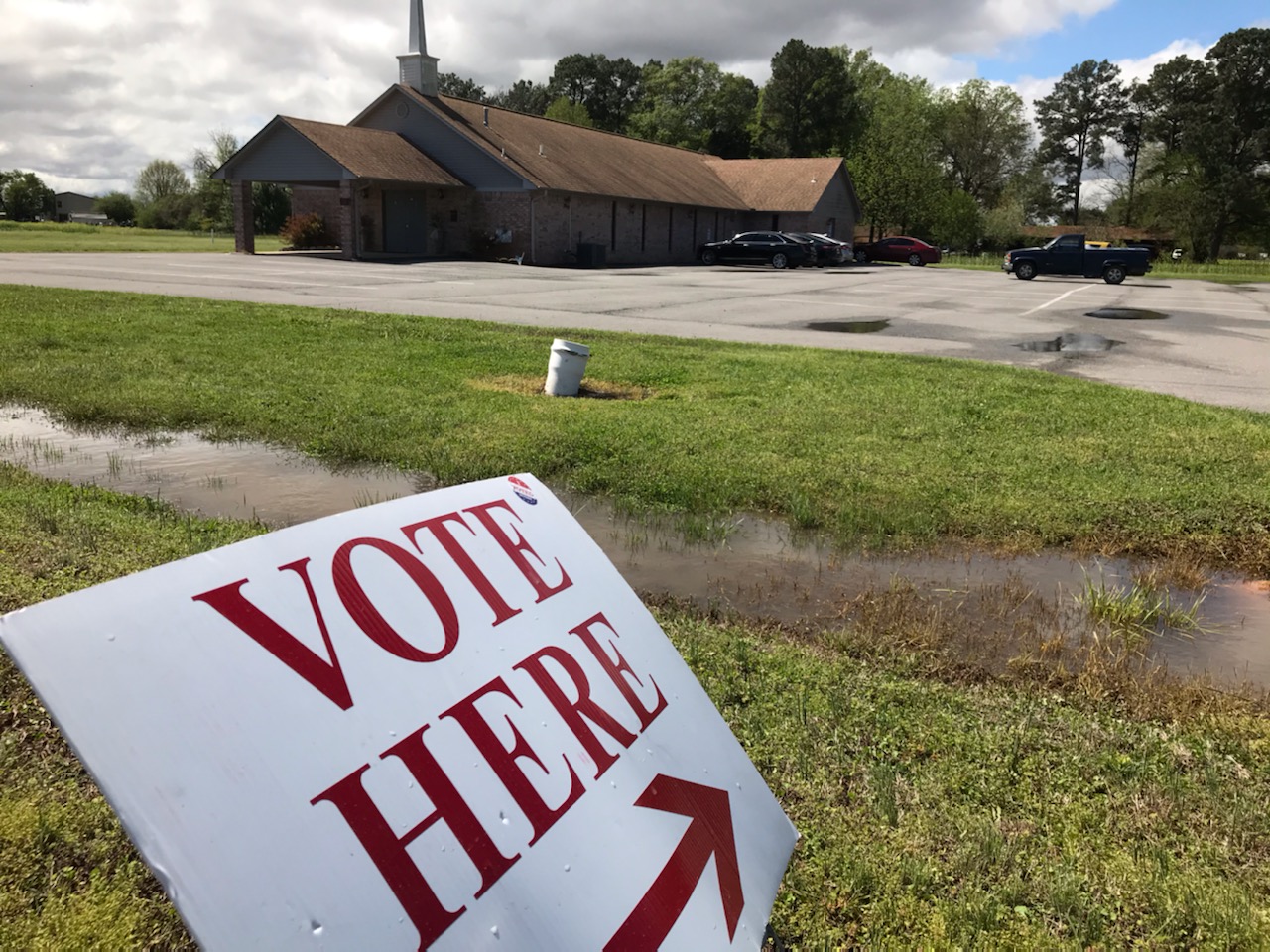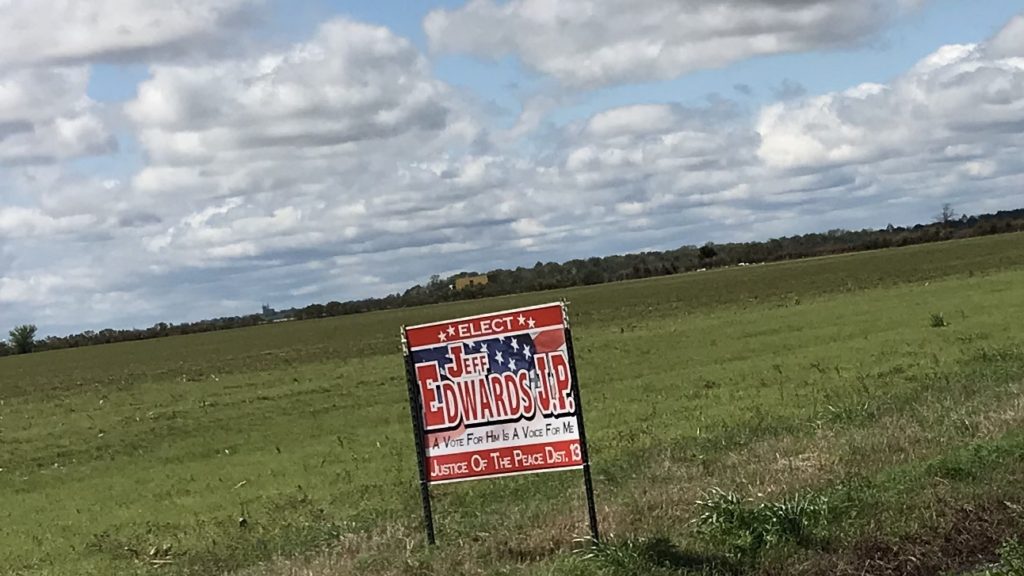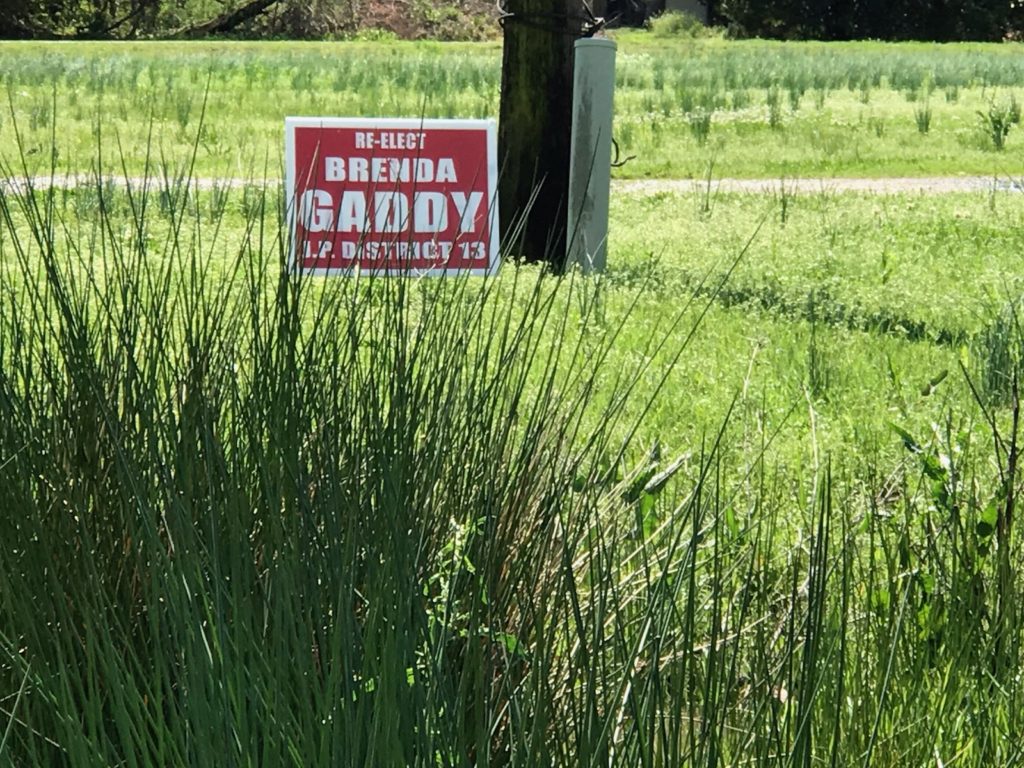Featured
A Runoff Election in Rural America Provides A Glimpse of Voting Difficulties Due to Coronavirus

Charles and Vera Collier stood outside the Mount Bayou Baptist Church as the wind whipped a chill into the early spring day. The couple had come to vote in the District 13 Justice of the Peace Democratic primary runoff in rural Jefferson County, Arkansas.
“They shut down all the voting places like at Wabbaseka and surrounding places, and this is the only place they had on this side of the river in this district,” Collier said.
His wife added, “They say this is her church.”

Brenda Gaddy, the incumbent Justice of the Peace, is a member of Mount Bayou, which served as the voting site. Her opponent, Jeff Edwards, and others say selecting Gaddy’s church as the only voting site gave her the “upper-hand”.
Edwards remarked, “My opinion is they should have made the polling site a neutral territory instead of her front door. Being a political candidate and you can go to your church and vote…it seems like it gives the candidate an unfair advantage.”

The Election Commission consolidated several polling sites in the county late last week. The mayor of Sherrill, a small community in Jefferson County, canceled plans to use its City Hall as a polling site. Several poll workers expressed concerns about possibly contracting the coronavirus and opted out of working. And, a library which sits across the street from Mount Bayou and has been a polling site in the past is closed.
“I was told by Commission Chairman Adam after I inquired about its usage during our meeting last week, ‘The library is closed.’ I then voted with reservations to hold the polling place at the church,” Election Commissioner Ted Davis stated.
The Colliers worried the changes would prevent some of their neighbors from voting. Their concern mirrors growing fears and a national conversation about the potential conflict between protecting voters from the coronavirus and avoiding voter suppression.
“I think they should have given the public more notice because a lot of people like me…I just found out yesterday that we’re supposed to come here…a lot of people don’t even know this is where they’re supposed to come vote,” Collier said. “And, I think they should have given the public more notice. That way everybody would have the opportunity to come out. But like I said, a lot of people aren’t going to vote because they don’t know where to go.”
The Vote Count
When the polls closed at 7:30 p.m. Tuesday, Edwards listened to the vote totals on the radio. Within minutes there was confusion about the absentee and early voting tally because of “old equipment”. Officials rushed to correct the mistake, announcing the correct totals which yielded 12 votes for Edwards and 22 for Gaddy.
Commissioner Stu Stoffer said, “Nobody is really taking Jefferson County seriously like they should and I’m telling you folks right now, I do not look forward to the General Election.”
With the coronavirus outbreak and concerns about antiquated voting equipment vulnerable to tampering, election officials around the country are sounding the alarm.
“We had a difficult time, a lot of people wouldn’t let us use their sites,” Commission Chairman Mike Adam said. “This is the best we could do.”
Dr. Sekou Franklin, a Political Science professor at Middlebury Tennessee State, has started following the work of several national organizations raising questions about the necessity of maintaining the integrity of the democratic process during the coronavirus outbreak.
“Election commissions at both the local and state levels need to develop alternative voting mechanisms to account for social distancing and the COVID-19 crisis,” Franklin advised. “Some voting rights advocates such as the UCLA Voting Rights Project, Brennan Center, and Lawyers’ Committee for Civil Rights Under Law are pushing for vote by mail.”
But, any efforts to address the new voting challenges created by the coronavirus will come too late for Edwards who lost the runoff to his Democratic opponent, 73 to 57.
“The people have spoken with the help of the coronavirus,” Edwards said. “I appreciate all of the voters who got out and participated in the process. The numbers are not reflective of the District 13 voting populace, but in the midst of what is going on with this virus and polling sites closed, this is where we are.”
If the circumstances around Edwards’ loss are a harbinger of what voters and candidates can expect this fall, Franklin is warning of the necessity to prepare.
He added, “Advocates and election officials concerned about safeguarding the vote need to get an early start on implementing alternative ways for people to vote without physically entering into a polling location and implementing procedural safeguards to guard against corruption and voter suppression.”

-

 Featured10 months ago
Featured10 months agoCalifornia Is the First State to Create A Public Alert for Missing Black Youth
-

 Featured9 months ago
Featured9 months agoAfrican American Leaders Stay the Course Amid Calls for President Biden To Bow Out of Race
-

 Featured10 months ago
Featured10 months agoThe Debate Fallout Lands on Both Candidates
-

 Featured9 months ago
Featured9 months agoPresident Joe Biden Decides to Withdraw from the Presidential Race
-

 Featured9 months ago
Featured9 months agoIn One of His Final Speeches as President, Biden Says It’s Time for ‘Fresh Voices’
-

 Featured9 months ago
Featured9 months agoPresident Joe Biden Describes Shooting of Donald Trump As ‘Sick’









